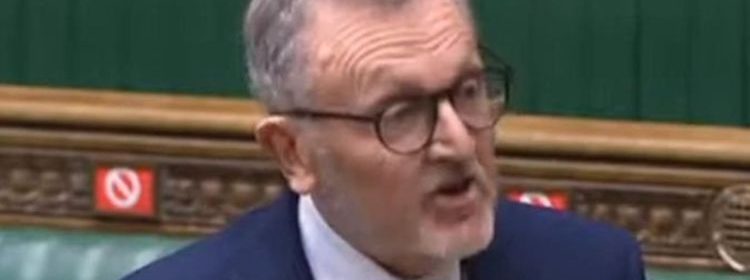Britain to ‘maximise’ farming technology in major trade deal with New Zealand

UK 'a huge leader' in agricultural technology says Mundell
We use your sign-up to provide content in ways you’ve consented to and to improve our understanding of you. This may include adverts from us and 3rd parties based on our understanding. You can unsubscribe at any time. More info
The new UK trade envoy to New Zealand David Mundell explained Britain’s free trade deal with New Zealand will be a major boost for British farming. Speaking to Express.co.uk, Mr Mundell said: “I think the free trade arrangement gives opportunities for both sides. For the UK, there are opportunities in areas like agritech, technology to support agriculture.
“The UK is a huge leader in that and obviously has shown significant agricultural interest.
“I think that has a particular scope.
“The UK has been previously involved in supporting and developing major infrastructure for UK businesses in New Zealand.
“There’s a whole range of opportunities and my role is to partly ensure that they are maximised.”


It comes as the UK has embarked on a 14-week consultation on a future trade deal with the Gulf Co-operation Council (GCC), seeking the views of the public and business before International Trade Secretary Anne-Marie Trevelyan hopes to begin talks in 2022.
The GCC comprises the Kingdom of Bahrain, the State of Kuwait, the Sultanate of Oman, the State of Qatar, the Kingdom of Saudi Arabia, and the United Arab Emirates, and it is one of the UK’s largest trading partners.
Total bilateral trade was worth over £30 billion in 2020 and an accord with the six monarchies is seen as a key target for post-Brexit Britain.
According to the Department for International Trade (DIT), it would take the relationship to the next level in industries of the future such as digital trade, services and green growth – delivering higher-paying jobs across the country.
Reality of Brexit deal hitting fishermen in UK and France says expert
Ms Trevelyan said: “A trade agreement with the Gulf Co-operation Council is a huge opportunity to liberalise trade with a growing market for British business and deepen ties with a region that is vital to our strategic interests.
“We want a modern, comprehensive agreement that breaks down trade barriers to a huge food and drink market and in areas like digital trade and renewable energy which will deliver well-paid jobs in all parts of the UK.”
The International Trade Secretary, who succeeded now-Foreign Secretary Liz Truss in a recent Cabinet reshuffle, is expected to hold a bilateral meeting in London with GCC secretary-general Dr Nayef Falah M Al-Hajraf and members of the Bahrain government, who currently hold the rotating presidency of the GCC.
Concluding in January 2022, the consultation includes a questionnaire aimed at gathering information from participants about their experiences and priorities when doing business with the countries in the GCC to ensure any future deal reflects the UK’s best interests.
DON’T MISS
Boris’ ‘build back better’ slogan ridiculed for unclear message [VIDEO]
Carol Klein urged Brits to grow vegetables as ‘antidote’ to Brexit [INSIGHT]
Andrew Neil brutally shuts down Remainer in Brexit clash [ANALYSIS]

Trade minister Ranil Jayawardena added: “The nations forming the Gulf Co-operation Council are, together, one of our biggest trading and investment partners and are home to over 50 million people.
“From exports of Welsh lamb and Scotch beef, to biscuits from Belfast and financial services from the City of London, I am determined to strike a deal that will further cement our relationships, attract investment, promote trade opportunities and provide significant benefits for British business, creating jobs in communities across the country.”
Paul Benton, managing director international of the Association of British HealthTech Industries (ABHI), said: “As the economies of the region have matured and diversified in recent years, we have seen a significant demand for proven UK HealthTech, and enhanced trade opportunities with the region will only boost this further.”
Shadow international trade secretary Emily Thornberry said while there are undoubtedly opportunities for British businesses in the Gulf, there were “lots of practical questions too”.
Source: Read Full Article
